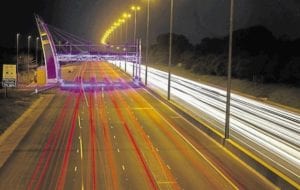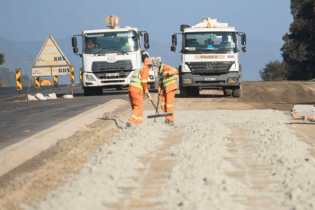It’s been almost a week since the landmark court ruling postponing the implementation of e-tolling in Gauteng. Joe Public has won a battle but perhaps not the war.
The South African government and its agency, the South African National Roads Agency Limited (SANRAL), have been made to look somewhat sheepish in the public eye. Putting that aside however, we need to look at the ramifications from a long term perspective and how the debacle has played out from an international view. There are lessons to be learnt for funding of future projects as well as reputation management. One of the main concerns raised through the high court ruling is the State’s willingness or ability to guarantee debt. The ruling has made the government appear weak and even confused – factors that will not win favour for the country as a foreign investment destination. It is no surprise then that Moody’s Investors Service has put a black mark next to SANRAL’s name. SANRAL relied heavily on borrowed funds to finance its operations – to the tune of R33,5 billion over the last five years. Analysts from Moody’s have pointed out that SANRAL was going to rely on e-toll revenue to service its R20 billion Gauteng Freeway Improvement Project (GFIP) debt as well as absorbing operational costs.The postponement of e-tolling will see the government subsidising SANRAL even after R5,75 billion was allocated to the agency in the annual budget announced in February.
Many may be following this sequence of events with only mild interest – particularly perhaps those not living in Gauteng. While the spotlight is on the Gauteng GFIP and e-tolling SANRAL’s long term plans involve rolling out similar projects in KwaZulu-Natal, the Eastern Cape and the Western Cape provinces. There have been huge lessons to be learnt from the GFIP e-tolling spectacle that should positively influence these plans. In addition:• Questions regarding what revenue derived from the fuel levy is used for need to be answered in a more transparent manner
• If the fuel levy is increased by as little as seven or eight cents in the region of R1,7 billion could be collected to for the project over 20 years – there would be no administrative costs attached to it.
• The arrogance of government assuming that the general public will pay for something that has been forced on them has been dulled.
By: Richard Jansen van Vuuren
Photo: Timeslive







